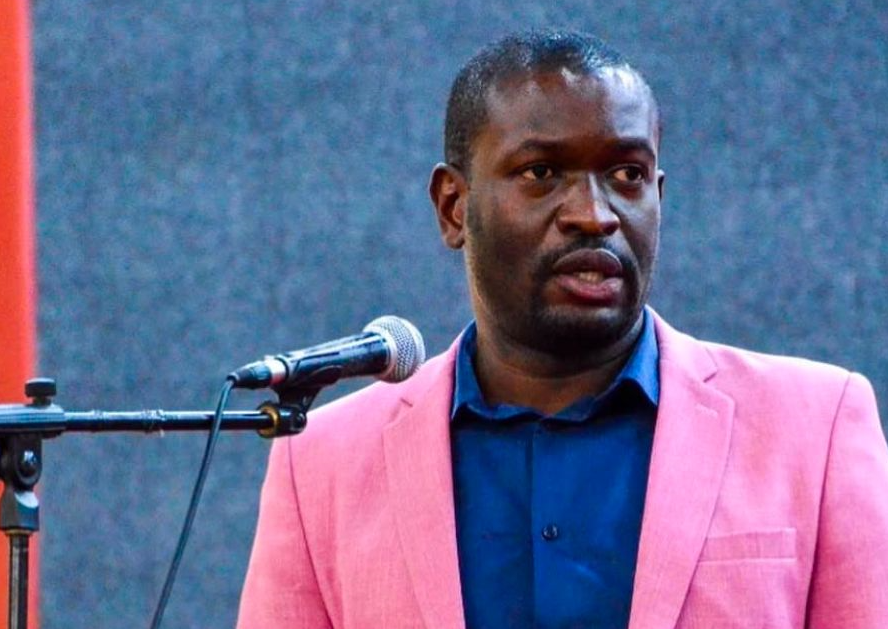Doctor convicted of being ISIS member sentenced to 12 years in prison for planning biological terror attack in Kenya
A Nairobi court has sentenced one of the leaders of the Islamic State (ISIS) terror group, Mohammed Abdi Ali, to 12 years in jail for planning a massive terror attack in the country in 2016 using fatal anthrax bacteria.
The effect of the biological attack that Ali, a medical doctor based in Wote in Makueni County, and his co-terrorists outside the country were planning to use causes sickness to human cells, which may result in instant death.
Chief Magistrate Martha Mutuku on Monday, April 22, 2024, sentenced Ali to 12 years in jail after finding him guilty of five charges including being a member of a terrorist group, organizing a meeting in support of terrorist groups, recruiting members of a terrorist group, collecting information to commit a terrorist act, and being in possession of articles connected with the commission of a terrorist act.
While passing the sentence, the magistrate declined a request by state prosecutor Duncan Ondimu to hand down a 22-year jail term, saying that she had considered the eight years he had been in custody as the matter was pending in court.
“Having considered all the mitigation, submissions by the defence together with the prosecution, and the time the accused person has spent in custody during the trial, I sentence the convict to 12 years in jail. He has 14 days to appeal,” Magistrate Mutuku ruled.
ISIS terrorist
During mitigation, state prosecutor Duncan Ondimu urged the court to jail Ali to a 90-year jail term for all five offences of terrorism acts.
Ondimu argued that the particulars of the charge and evidence show that the offences were committed over a period of several years and not a one-off transaction.
“A look at the counts for which Ali has been convicted on count 1 provides for a period not exceeding 30 years. On behalf of the prosecution, considering that he has been in custody for 8 years, we propose a 22-year term.”
“On the second count, the sentence should not exceed 20 years; we propose a period of 12 years. Count four provides a sentence of 30 years; we propose a sentence of 22 years. The seventh count provides for a maximum sentence of 30 years; we propose 22 years. On the last count, which provides for a maximum of 20 years, we propose a period of 12 years,” Ondimu told the court.
Ondimu told the court, that Ali, being a medical doctor working at Wote District Hospital at the time of his arrest, knew what he was doing.
Furthermore, he added that Ali has not exhibited any remorse on his part or an attempt to atone for his deeds to see whether this court can visit mercy upon him.
“The defenceless nature of the victims should be noted that terrorism affects everyone, in most cases, they cannot defend themselves, and in this case, there was the use of technology to perpetrate the crime,” Ondimu told the court.
On his part, Ali through lawyer Chacha Mwita urged the court to consider a suspended sentence which they say can be supervised by a probation officer for a period of around three years.
A probation report tabled in court shows that Ali’s parents regretted the move, saying it was unfortunate that after eight years, they have not seen the benefits of the investments they made in their son.
“The parents of the convict have invested in their son to become a doctor. Parents would like to see the dividends they have been unable to see for the past 8 years,” Lawyer Mwita told the court.
Furthermore, he said after eight years in custody, the convict had fulfilled the objectives of retribution, deterrence, rehabilitation, and restoration.
The sentencing comes after one week ago the court found Ali guilty and convicted him of being a member of a terrorist group and linking youths with other Islamic states of Iraq and Syria (ISIS) fighters in Libya.
“I find that the prosecution has proved its case against Ali concerning counts 1,2,4,7, and 8, and I convict him for these counts under section 215 of the Criminal Procedure Code (CPC). I grant him the benefit of the doubt in counts 3,5, and 6 and acquit him under 215 of the CPC,” ruled the magistrate.
The court, however, acquitted Ali’s wife, Nuseiba Mohammed Haji Osman alias Umm Fidda, who had been charged alongside her husband on all charges relating to planning a terrorist act and being a member of a terrorist group for lack of evidence.
While convicting Ali, who was a medical doctor at Wote before his arrest on April 29, 2016, Magistrate Mutuku stated that there was overwhelming evidence that he was in constant communication with other terrorists outside the country through his social media accounts, namely Twitter, Gmail, WhatsApp, KIK, Threema, and Telegram, among others.
“From the evidence of the 26 witnesses, the court concludes that the first accused person was in association with Al-Shabaab as he would disseminate the information on his various social media platforms by offering logistical assistance to ISIS, a known terrorist group. In his Twitter account, even when the accounts were closed, he would open other accounts and share Al-Shabaab materials with his followers,” the Magistrate ruled.
The magistrate also found that Ali, being a member of ISIS terrorist groups, organized meetings in support of terrorism and at one point made a directive to one Mohamed Abdullahi Hassan alias Miski, a known terrorist, and other unidentified persons to plan for the establishment of an ISIS cell in Kenya with the help of ISIS returnees from Libya.
Ali was also convicted for being in possession of articles, namely videos and images, on his three mobile phones and laptops for use in instigating the commission of terrorist acts.
During the hearing, the prosecutor Ondimu informed the court that the terror network linked to Ali has engaged in active radicalization, and recruitment of university students, and other Kenyan youth into terrorism networks.
The court was informed that Ali and his co-accomplices outside the country were planning large-scale attacks using anthrax – a bacteria that can sicken or kill people in Kenya.
The prosecution stated that Ali’s network has been facilitating Kenyan youths to secretly leave Kenya to join terror groups in Libya and Syria.
Ali’s terror network within Kenya spreads as far as the Coast region, North Rift region, and Western region, as well as other countries that include Somalia, Libya, and Syria.
It is alleged that ISIS recruiters are known to seek out medical students across the world.
The prosecution also said that the network also included medical experts with whom they planned to unleash a biological attack in Kenya using anthrax in 2016.












